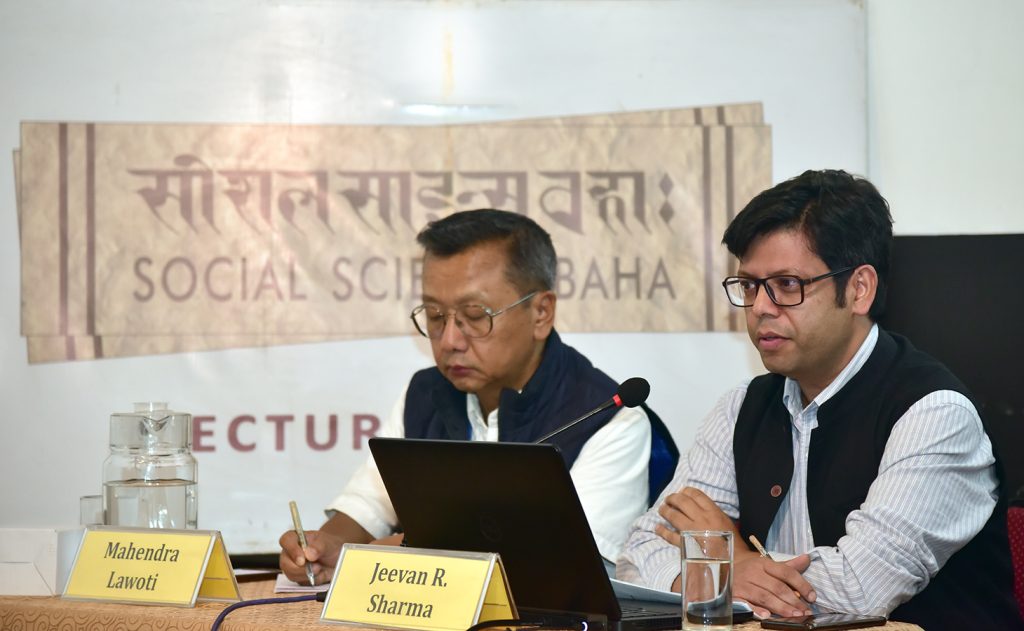Lecture Series
Nepal’s Great Transformation? Political Economy of Social Change and Development in Nepal

Jeevan R. Sharma
on
Nepal’s Great Transformation?
Political Economy of Social Change and Development in Nepal
Nepal has been experiencing tumultuous socio-political and economic changes since the 1950s. Within a short period of time, it has jumped from a feudal, hierarchical monarchy to a republic order that has attempted to engrain ideas of rights, equality and inclusion in the last two decades. These has been a gradual shift in rural livelihoods with the commodification of land and labour, the widespread flows of cash and financialization and extensive outmigration, with once-remote areas deeply penetrated by the ideas as well as material aspects of development, market and modernity. Nepali young men and women have sought escape from precarious situation as migrant workers in the far-flung economies of India, the Gulf, South East Asia and other global destinations, often on paradoxical terms of precarious employment and widespread reports of ill-treatment with profound consequences for the welfare and care of those left behind. What does it mean to talk about change, transformation and transition in Nepal beyond its stereotypical image of fatalism and immobility? How are powerful historical processes experienced and negotiated in Nepal? How might we assess the paradoxical effects of these transformations in people’s lives and livelihoods, both in terms of expanding ideas of rights and freedom while also producing vulnerabilities and precarity?
Drawing on insights from field research carried out in Nepal since 2004, this lecture will engage with these questions and consider how Nepal’s political economy has been transformed since the 1950s while situating these changes in Nepal’s modern history and its location in the global economic system. First, this lecture assembles and builds on the scholarship on Nepal from a multi-disciplinary and synoptic perspective. In doing so, there is an attempt to go beyond the sedentary, immobile, fatalist and romanticised narrative of Nepal that has remained dominant in orientalist scholarship on the country. Second, focusing on local discourses, experiences and expectations of transformations, this lecture will draw our attention to how powerful historical processes are experienced and negotiated in Nepal and assess how these may, at the same time, produce ideas of equality, human rights and citizenship, while also generating new forms of precarity.
* * *
To listen or download lecture in audio format
Jeevan R. Sharma is Professor in South Asia and International Development, Department of Social Anthropology, the University of Edinburgh, and Co-Director of Centre for South Asian Studies at the University of Edinburgh. Prior to joining the University of Edinburgh, he was Senior Researcher and Assistant Professor at Feinstein International Centre at Tufts University. He is the author of Political Economy of Social Change and Development in Nepal (Bloomsbury, 2021) and Crossing the Border to India: Youth, Migration and Masculinities in Nepal (Temple University Press, 2018; Bloomsbury, 2019). He is currently working on his third book on the precarity of low-income migrants in/from South Asia. His work has focused on labour migration in the context of social, economic and political transformations in Nepal, the Himalaya and the South Asian region, especially the culture of migration; border crossing; gendered, classed and racialised mobility of labour; ill-treatment; access to justice and citizenship in South Asia. He is co-editor of HIMALAYA and an associate editor of South Asia: Journal of South Asian Studies.

